Welcome back to WHR Radio Where You Decide! 
We are pleased to announce our next special guest host, the very talented Mr. Jonny Coyne who will join us Sunday April 15, 2012 6 PM Pacific, 9 PM Eastern time to discuss his human interest topic People who suffer from Obsessive Compulsive Disorder (OCD) in an exciting interview about his career experience as an actor.
We include below case studies about Obsessive Compulsive Disorder sufferers courtesy of the Anxiety Disorders Association of British Columbia (AnxietyBC™).
About David:
David is a 40-year-old accountant who is divorced and lives alone. His marriage ended because of his ways of doing things. David describes himself as a “perfectionist” who repeats everything he does (e.g., reading, writing, locking doors) at least three times to ensure that he has done every task perfectly.
David says that the more anxious and stressed he is, the more times he needs to repeat a task. He knows that he has done something perfectly when it feels “just right”. David says that since he was a child he has always been concerned about doing things perfectly and correctly. When he was in school, he would spend most of his time writing and rewriting his assignments to make sure that they were done perfectly. He would also read and re-read the same textbook paragraph until he felt that he completely understood and remembered the information it contained.

At work, David repeatedly checks everything he does, particularly forms and other written work, to make sure that he has done it correctly and perfectly. If he makes a mistake, he needs to redo the whole document.
David states that it often takes him a long time to complete any written work, even writing an address on an envelope, because he worries that something bad might happen (e.g., loss of client) if things are not done “perfectly”.
David also has a strong need to know and remember things, repeatedly asking for clarification if he does not fully understand something that is said to him. He also blinks repeatedly when he is trying to understand something because he believes that doing so helps him to understand things better.
David is also very concerned about saying “just the right thing” to people. He worries that if he does not communicate precisely, he will be misunderstood. He usually rehearses what he wants to say in his head first, to make sure that his responses are precise and perfect.
David knows that his need for perfection caused his marriage to fail and makes him less productive at work, but he worries that if he does not strive to do everything perfectly, he will end up making mistakes all the time and become jobless and then homeless. David feels confused and depressed; he is not sure what he should do about his condition and is not confident that he can change.
About Jenny:
Jenny is a 31-year-old married woman with a 3-year-old son. Born and raised in China, she immigrated to Canada with her husband about 10 years ago. She has been on leave from her nursing job for over a year due to anxiety-related difficulties.
Jenny says that because of her job she has always been careful about being clean, but she was never overly concerned about germs. However when she returned to work after a maternity leave, she started having “scary” thoughts that if she was not careful enough, she could contract a serious illness (such as AIDS) at work and make her baby sick. Although she knew that it was difficult to contract the HIV virus, she found the idea of making her son sick very upsetting.
Because of this concern, she took extra care when washing her hands at work; for example, she used only very hot water to wash her hands because she thought it would get them cleaner, and washed them repeatedly until it felt “just right”. She also made sure that she changed out of her work clothes before going home, and washed them with bleach. Jenny says that her f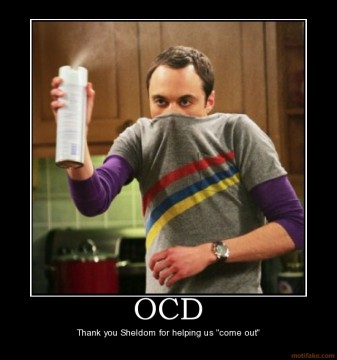 ear of being
ear of being
contaminated was manageable at first, because she only needed to wash her hands after coming in contact with a patient. She thought that it was just a phase and that she would “get over it”.
But, Jenny’s fear only got worse over time. She soon found herself being consumed with worries about contracting and spreading an illness to her son. She became afraid of coming into contact with more and more things at work, and felt she needed to wash her hands more frequently. By the time she decided to take a leave from work, she was washing her hands up to 70 times a day, and they were raw and bleeding as a result.
At home, she frequently “disinfects” all of her son’s toys with boiling water and washes his clothes and sheets with bleach. She also avoids taking him to parks and other public places for fear that he will come into contact with a “contaminant” (e.g., animal feces, used tissue paper) and get sick. Jenny’s preoccupation with her son’s well-being is a major source of tension between her and her husband, because her husband feels that she is overly protective of their son.
Although Jenny is aware that her fear is excessive, she finds it too difficult to resist washing and cleaning because she does not want to risk harming her son.
There are many different types of obsessions, and many people with OCD will have more than one type of obsession. Some examples of common obsessions are:
Fear of contamination:
This obsession involves a fear of coming into contact with germs, getting sick, or making others sick, from touching “dirty” or “contaminated” items, sticky substances, or chemicals. For example, “I will be contaminated by germs if I pick up this pen off the floor”, or “I can be poisoned by lead if I come into contact with paint.”
Thoughts of doubt:
This obsession involves constant doubt about whether you’ve done something wrong or made a mistake. For example, “Did I turn off the stove?”, “I think I made a spelling error on the email I just sent.”, “I think I threw away something important”, or “I might not have answered that question clearly and precisely enough.”
 Fear of accidentally harming self or others:
Fear of accidentally harming self or others:
Adults with these obsessions are afraid of harming themselves or others through carelessness. For example, “If I don’t make sure that the door is locked at night, the apartment might get broken into and I might be robbed and murdered”, “If I don’t immediately change out of my work clothes and wash them with bleach, I might bring outside germs home and cause my whole family to be sick.”
Need for symmetry/exactness:
Adults with this obsession feel a need to have objects placed in a certain order or position, or tasks or events to be completed in a set way. For example, “I need to sort all my clothes by colour and have them face the same direction. Otherwise, it just does not feel right!”; “I just scratched my right arm twice and now I need to balance it out by scratching my left arm twice.”
Some examples of common compulsions are:
Washing/cleaning compulsions:
Washing hands excessively
Rituals and rules for cleaning the bathroom or kitchen, washing laundry, etc.
Grooming/teeth brushing rituals (for example, brushing your teeth in a particular order)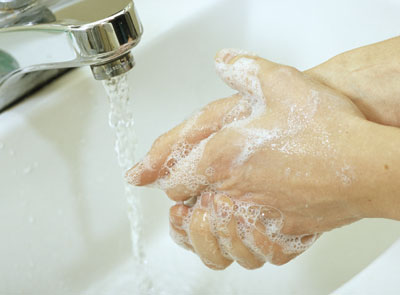
Showering rituals (such as washing a specific part of the body first)
Checking compulsions:
Checking to make sure doors are locked, stoves are turned off, electrical outlets are unplugged, etc.
Checking to make sure everyone is okay and not harmed. For example, calling family members repeatedly to “check” if they are safe.
Checking to make sure that you haven’t made any mistakes. For example, re-reading emails over and over to “check” for spelling/grammar mistakes or visually checking the environment to make sure that you have not left anything important behind.
These behaviours are performed in an attempt to stop something bad from happening. However, repeated checking often makes people feel even less sure that they have successfully prevented the bad event from happening. Some examples include:
Ordering/arranging compulsions:
This category of compulsion involves arranging items in specific ways, such as clothes, books, shoes, etc. For example, you might line up all the clothes in the closet so that they are arranged according to colour, with all the hangers facing in the same direction. Adults with this compulsion will sometimes arrange things until it “feels right”. Some will do it to prevent bad things from happening; for example, “If I don’t arrange all the books and magazines in the house so that they face east, then someone in my family will die.”.
Mental rituals:

These are compulsions that are performed in your head. For example, you might mentally repeat a prayer whenever you have thoughts about something bad happening, or you might replace a “bad” thought (e.g., mom dying) with a “good” one (e.g., mom smiling and in good health).
Need to ask or confess.
Some adults with OCD are afraid that they have done or thought something “bad”, and therefore feel a strong urge to confess all of their thoughts to friends or family (for example, telling a loved one that “I just had a thought about pushing someone into the street”). Most people who feel the need to confess will also seek repeated reassurance that everything is okay (for example, asking a loved one, “Do you still love me even though I had a bad thought?”).
Hoarding.
Some adults with OCD have a very hard time throwing away things that seem to others useless or of limited value. Hoarding can lead to excessive clutter in the home and interfere with daily life. For example, some people are not able to throw away any receipts, financial documents, or old newspapers.
How do I know if I have OCD?
Everyone has thoughts that are upsetting or do not make a lot of sense from time to time; this is normal. Just having an unpleasant thought does not mean you have obsessions. Similarly, it is not uncommon for people to repeat certain actions, such as double-checking whether the door is locked. However, these behaviours are not always compulsions.
When is it an Obsession?
Obsessions occur frequently, even when you try very hard not to have them. People with OCD often say that their obsessions are intrusive and out of control.
Obsessions are time consuming. People with OCD spend at least one hour a day thinking about their obsessions.
Obsessions cause a lot of anxiety or distress and interfere with life.
Obsessions often lead to compulsions. People who have normal unwanted thoughts will not engage in compulsive or ritualistic behaviours.
When is it a compulsion?
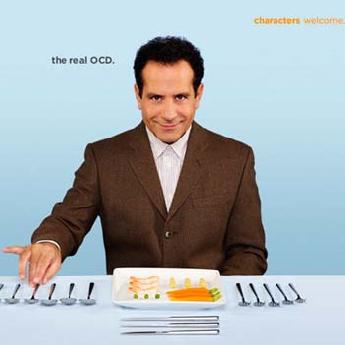
Compulsions are related to obsessions. For example, if you have obsessions about being contaminated by germs, you will compulsively wash your hands to reduce the fear of being contaminated by touching something “dirty”.
Compulsions are repetitive. They are often done repeatedly and in an excessive and very specific way (e.g., washing each finger carefully, using only hot water). If the compulsions are not performed “correctly” or are interrupted, you might need to perform the entire compulsion again. Once is never enough!
Compulsions are also time consuming. People with OCD often spend at least one hour a day carrying out their compulsions.
Compulsions are deliberate. Although people with OCD describe their obsessions as being unwanted thoughts that “pop” into their heads uninvited, compulsions are carried out deliberately, because compulsions reduce anxiety in the short-term. While obsessions cause anxiety, performing a compulsion reduces that anxiety. For example, if you have an obsession about being contaminated by germs, you will probably feel anxious. However, if you then start compulsively washing your hands, your anxiety will probably diminish.
Compulsions cause a lot of anxiety in the long-run. Although people with OCD perform compulsions to “deal with” their obsessions, they often find that they become “slaves” to their compulsions. That is, they need to carry out the compulsions so often that they feel that they have no control over them.
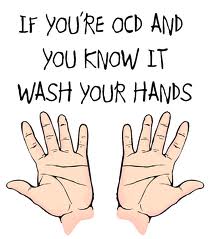 In summary, you have OCD if:
In summary, you have OCD if:
You spend a lot of time thinking about (or avoiding) your obsessions and/or performing your compulsions. You feel quite anxious or nervous most of the time.
Your daily life is significantly affected by it. For example, your OCD might cause you to take hours to do a small task (e.g., writing a casual email), get in the way of spending time with your family and friends, or prevent you from meeting work deadlines or even getting out of the house.
Young adults between 18 and 24 years of age are at the highest risk for developing OCD. However, many adults with OCD say their symptoms started when they were children or adolescents.
Men tend to develop OCD at an earlier age (usually between age 14 and 19.5) than women (usually between age 21 and 22). Among adults, women report having OCD slightly more frequently than men.
Over time, OCD symptoms can change. For example, you might start off with washing your hands compulsively, but later develop excessive checking behaviours and actually stop compulsive washing altogether.
OCD can also be a secondary disability for individuals with other disabilities such as Autism and Aspergers Syndrome. There is also a 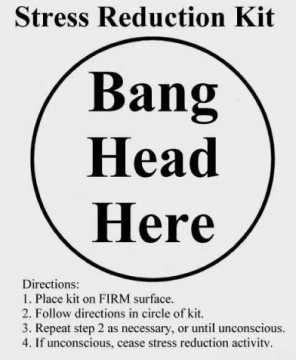 connection between PTSD (Post Traumatic Stress Disorder) and OCD. The experience of traumatic events has also been connected to compulsive behaviours often seen in OCD, such as hoarding. In addition to PTSD, people who have experienced a traumatic life event may also be more likely to develop symptoms of OCD. In fact, it has been shown that the severity of a person’s OCD symptoms is connected to the number of traumatic events they have experienced in their lifetime.
connection between PTSD (Post Traumatic Stress Disorder) and OCD. The experience of traumatic events has also been connected to compulsive behaviours often seen in OCD, such as hoarding. In addition to PTSD, people who have experienced a traumatic life event may also be more likely to develop symptoms of OCD. In fact, it has been shown that the severity of a person’s OCD symptoms is connected to the number of traumatic events they have experienced in their lifetime.
After experiencing a traumatic event, a person may constantly feel anxious and have concerns about their safety. Compulsive behaviours (like checking, ordering, or hoarding) may make a person feel more in control, safe, and reduce anxiety in the short-run. However, in the long-run, compulsive behaviours do not adequately address the source of the anxiety and can even increase the amount of anxiety someone experiences.
What causes OCD? The short answer is, we do not know. While people who have relatives with OCD are at a higher risk of developing the disorder, most people with the illness have no such family history. A specific chromosome – gene variation has been found to possibly double the likelihood of a person developing OCD. It is thought that an imbalance of the chemical serotonin in the brain may also contribute to the development of OCD. Some life stressors, like being the victim of sexual abuse as a child, can increase the chance of developing OCD as an adult.
Treatments include cognitive behavioural psychotherapy, behavioural therapies, and medications. Behavioural therapies for OCD include ritual prevention and exposure therapy. Prevention of rituals involves a mental-health professional helping the OCD sufferer to endure longer and longer periods of resisting the urge to engage in compulsive behaviours.
Exposure therapy is the process by which the individual with OCD is put in touch with situations that tend to increase the OCD sufferer’s urge to engage in compulsions, then helping him or her resist that urge. Cognitive/behavioural therapists help patients change the negative styles of thinking and behaving that are often associated with the anxiety involved with obsessive compulsive disorder.
 Thanks to Kenn for staging the audio in this post for me, and thanks to you for stopping by WormholeRiders News Agency! We hope to see you all for our interview: Jonny Coyne talks about OCD this Sunday 6 PM PST 9 PM EST
Thanks to Kenn for staging the audio in this post for me, and thanks to you for stopping by WormholeRiders News Agency! We hope to see you all for our interview: Jonny Coyne talks about OCD this Sunday 6 PM PST 9 PM EST
Please feel free to leave a comment here, click an icon below to share this interview, or you can visit and follow me on Twitter by clicking on my avatar to the right.
Regards,
Thank you.
ArcticGoddess1 (Patricia)


Hi Patricia,
You article on Obsessive Compulsive Disorder is outstanding. As I have members of my family who suffer a peculiar form of this disorder, your research was most appreciated.
Best Regards,
Kenn
Hello, i think that i noticed you visited my web site thus i got here to return the favor?. I’m attempting to find things to improve my website! I assume its ok to make use of a few of your ideas!!
Hello zakład stolarski opole,
You may quote our news articles using link back references as required under international law. Good luck on your web site.
Best Regards,
Kenn